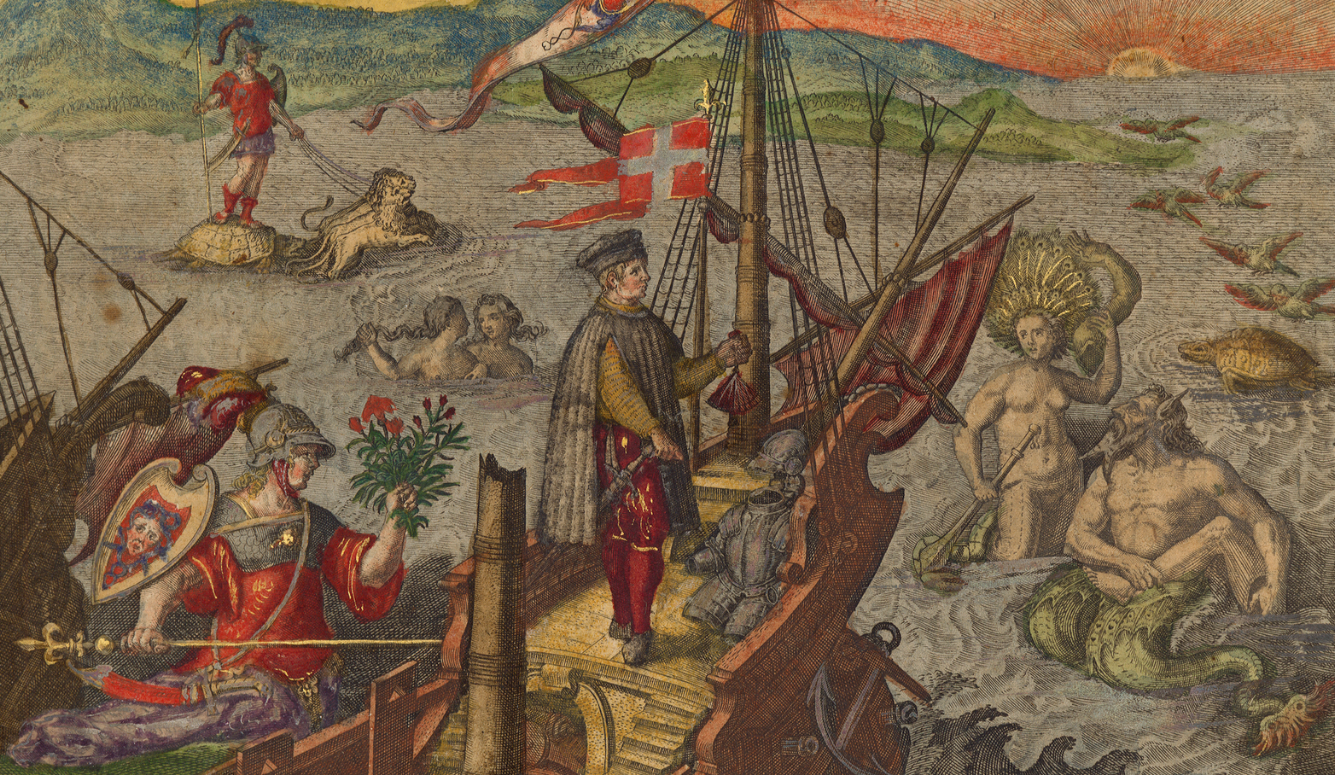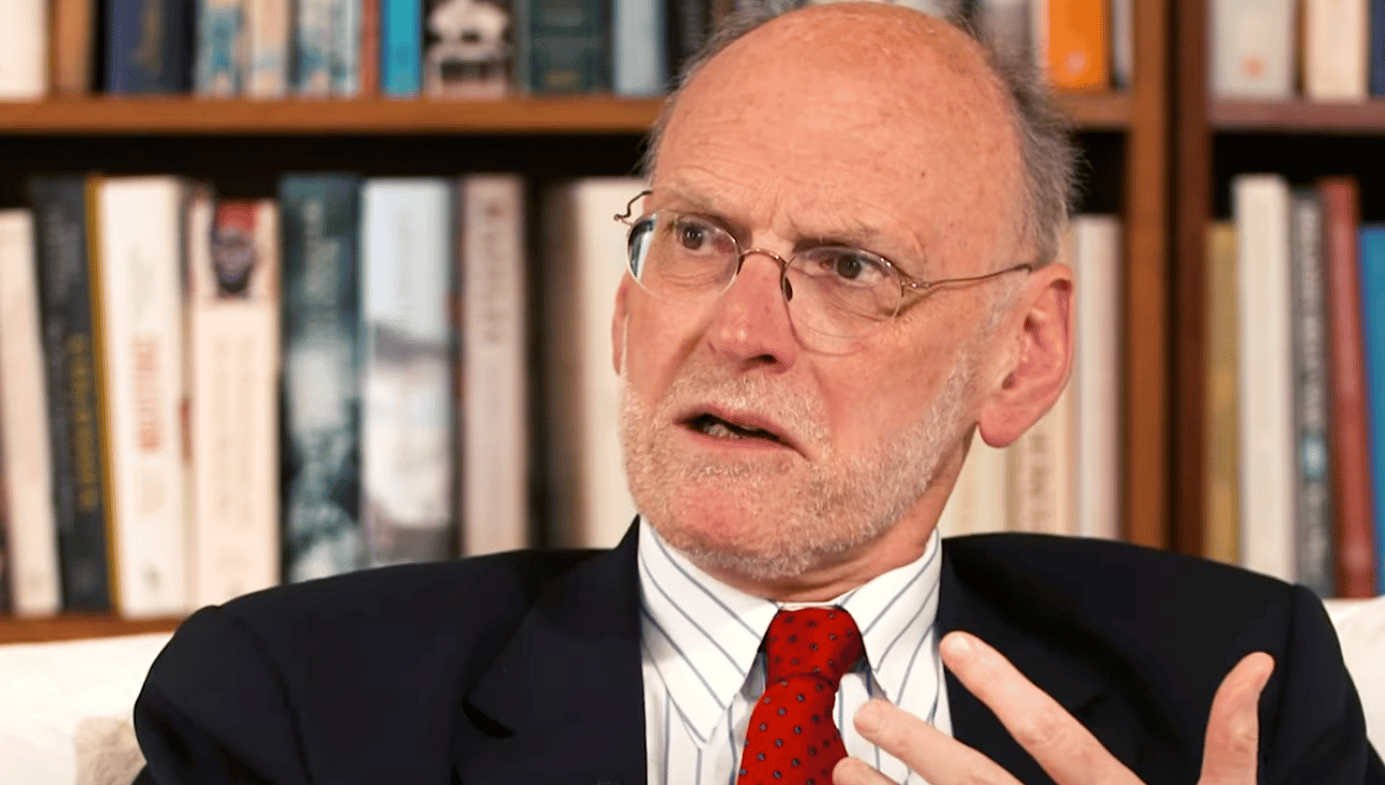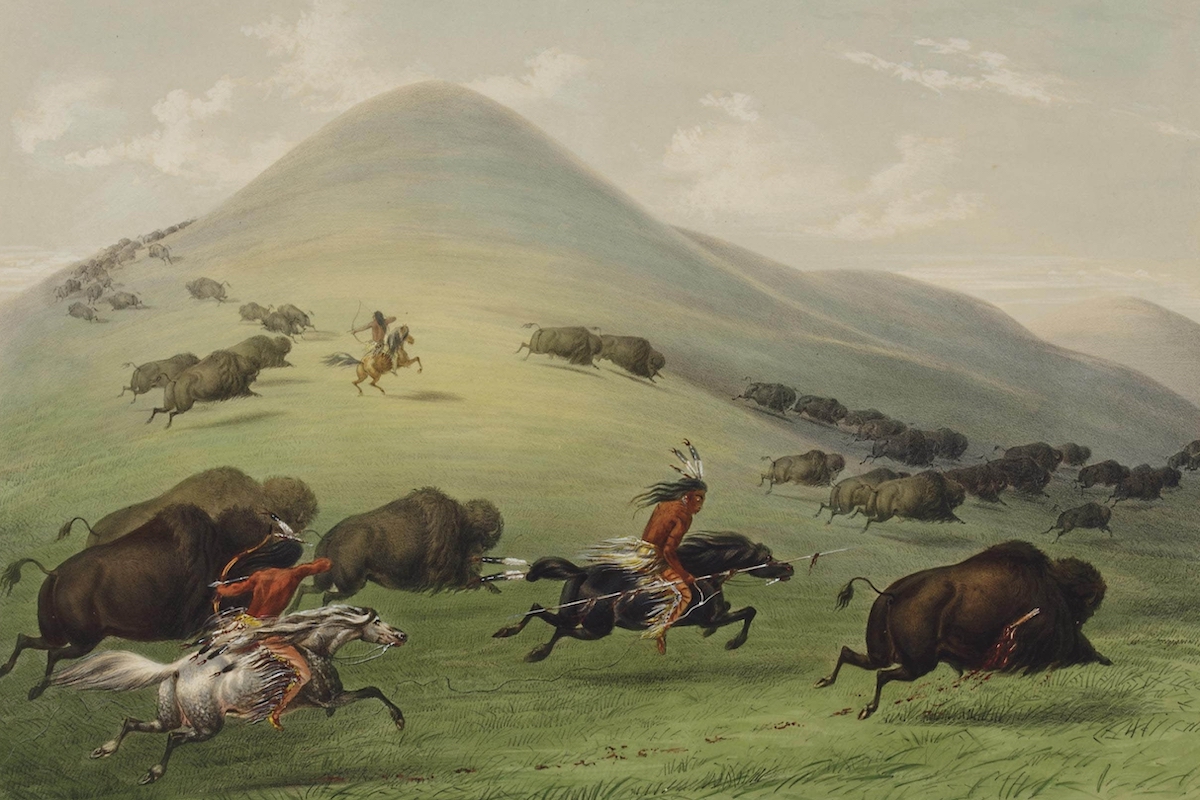American History
Columbus Day: A Fraught Celebration
The world is better than it would have been had we remained isolated from each other—even for Native Americans.

Today is 9 October and Spain, Italy, some Latin-American countries, and the United States are all celebrating Columbus Day.
The holiday was originally instituted to commemorate the deaths of 11 Italian immigrants to the US. When New Orleans police chief David Hennessy was shot and killed in 1891, his dying words implicated local Italian Americans—then a frequently despised immigrant group. Contemporary news media predictably fanned the flames. Police rounded up a number of Italian Americans, but a subsequent trial cleared most of their names. Enraged at the perceived injustice—which some attributed to mafia interference—a mob stormed the jail, shooting some prisoners, and tearing others apart and hanging some of the corpses. Shame over the incident, coupled with international pressure, led President Benjamin Harrison to proclaim a new holiday to honor the contributions of Italian Americans. The first Columbus Day was celebrated in 1892. It became a national holiday in 1937. The idea was to highlight the idea that Italian immigrants were an integral part of the fabric of America, rather than dangerous foreigners, and that their story was woven into the origins of the nation itself—since, after all, there would have been no United States had Columbus not found his way to the Americas centuries before. The Columbus Day celebration drew on a popular legend of Columbus the plucky discoverer and rebel against stuffy European authoritarianism. Many Italian American groups continue to fiercely defend the holiday.
They are not the only ones. Advocates of the holiday describe Columbus as a visionary whose determination helped create the world we live in today. According to these defenders, despite everything—despite the genocides and smallpox epidemics, the wars, and the ravages of alcohol—the contact between the Old and New Worlds that Columbus initiated was a good thing. The world is better than it would have been had we remained isolated from each other—even for Native Americans. People living today, anywhere in the world, have better economic and medical prospects, greater rights and freedoms, and less chance of being sold into slavery or dying by homicide than could have been imagined in the fifteenth century. None of these developments might have happened without the Columbian Exchange—the sharing of botanical knowledge and seed stock between the eastern and western hemispheres, which allowed them to develop food crops that were more resilient to predators and parasites; and the vital introduction of science and technology to the New World. Democratic republics soon flourished in the colonized western hemisphere.

Of course, it was no utopia. Many indigenous communities in the Americas continue to underperform in society relative to most later arrivals to the continent, including Europeans, East Asians, and immigrants from post-slavery, twentieth-century Africa. The reasons for this are undoubtedly complex, but losing a pancontinental war of conquest and being ravaged by European diseases to which they had no natural immunity have undoubtedly played a major role.
At the same time, studies of American Indian empires ranging from the Aztec, Maya, and Inca in the south to the Iroquois, Comanche, and Lakota Sioux in the north reveal that genocide, wars of conquest, brutal slave markets, rape, and human sacrifice were widespread practices in the western hemisphere—just as they were in the eastern. Not that Native Americans were any more brutal than premodern Europeans, Africans, or Asians. These are traits of premodern cultures everywhere.
On both hemispheres, people were subject to deadly diseases and lacked modern medical interventions such as antibiotics and vaccines to tackle them. Famine was common. There was no social safety net for those who were ill or infirm. The absence of modern policing meant that crime and violence were rampant. As Stephen Pinker notes in his 2018 book Enlightenment Now, the period following the Columbian Exchange witnessed massive improvements in health care, life expectancy, social welfare, food availability, and literacy.
Having said that, there is good reason to refrain from celebrating Columbus. First, Columbus himself famously failed to recognize that he’d made shore fall on a new land—rather than finding a new route to India, as he had planned. And, although he was a skilled navigator, he proved an inept governor who, at best, turned a blind eye to the plight of the local Indians. Second, though the Columbian Exchange proved to be a boon for modern humans, it came at enormous cost to the natives of the time, who suffered horrifically. These facts have led many commentators to repudiate the holiday or suggest replacing it with a day commemorating the American Indians.
The controversy has been raging for the past two decades and dwarfs the importance of the federal holiday itself, which not all states recognize. Some US states have renamed it Indigenous People’s Day, although most Americans don’t support the name change. So, how should we tackle this?
Sometimes, if there’s no clear better alternative, it’s best to stick with the status quo, however unsatisfying that may be. We could simply continue to view the holiday as a celebration of Italian Americans. We could also use it as an opportunity to teach the full history of contact between Europeans and Indians. But that would probably prove unpopular, as the full account would not be flattering to either group and most people only want to teach the history that supports their own moral narrative and ignore the rest. I therefore remain skeptical that the holiday will ever provide a great catalyst for learning much of anything.
Another alternative would be to rename it Indigenous People’s Day. On the surface, this approach—already endorsed by some US states and some other countries in the Americas—has obvious appeal as a symbol of restitution. However, this suggestion has several problems of its own.
First, if involvement with slavery, ethnic warfare, and other unsavory practices disqualifies Columbus from being honored by a holiday in his name, it also disqualifies indigenous people—and pretty much every culture on the planet. The Native Americans were fallible humans like the rest of us and prone to the same disappointing moral blind spots as people all over the globe. This doesn’t mean they deserved the horrible consequences the Columbian Exchange had for their cultures, but it does mean that we should not elevate them to superior moral standing.

Second, attempts to single out one ethnic group for a national holiday may fall foul of the spirit—if not the letter—of the constitutional principle mandating equal treatment of all groups. Even if this is not the case, an Indigenous People’s Day seems almost guaranteed to foster divisiveness, rather than unity, because of the same tribal impulses that caused the ethnic strife in the first place. It is far better to encourage universal civic nationalism than to highlight differences between population groups. The recent addition of the Juneteenth holiday (celebrated on 19 June) to the national calendar is an excellent example of how to do this. Although the holiday is important to many black Americans, it’s not merely a “black” holiday. It marks the elimination of slavery—something all Americans can and should celebrate.
Finally, there is already an International Day of the World’s Indigenous Peoples, instituted by the United Nations and celebrated on 9 August. I think we should include this among the many unofficial holidays celebrating the world’s diverse cultures, such as St. Patrick’s Day and Cinco de Mayo. But an official federal holiday for any particular ethnicity (whether it be Indians or Italians) is probably not such a great idea.
Another option would be to copy Hawaii’s approach. In Hawaii, 9 October is known as Discoverers’ Day (and it is not an official state holiday). Although Discoverers’ Day is meant to focus on Polynesian discoverers of the islands of Hawaii, the name could be repurposed to designate a general holiday to celebrate all discoverers of the western hemisphere, including the Asiatic people who became American Indians, as well as the Polynesians, Vikings, and fifteenth-century Europeans. Italian Americans could still take pride in the holiday—but so could American Indians.
This approach would highlight unity rather than division and celebrate all groups now living in the Americas. This wouldn’t preclude us from noting the dark history of human migration—but such a holiday would probably best serve us by focusing on discovery, progress, and the ability of disparate human groups to achieve unity in a multicultural America. In other words, it could become a holiday characterized by optimism about the future, rather than shame about the past.
Another obvious solution is to get rid of the holiday altogether. Many US states don’t recognize Columbus Day anyway, and it’s probably not most Americans’ favorite holiday. But that seems like a shame: holidays provide a good reason to take a day off work and Americans could probably use more of them, not less.
Whatever we decide to do, we need to avoid judging historical figures according to the standards of the present day: a practice known as “presentism.” Fostering guilt over the actions of the European ancestors of white Americans just promotes division. And spreading the myth that Native Americans were noble savages obscures the universal viciousness of human history.
I suspect the most constructive path forward is to institute a Discoverers’ Day, to commemorate all those who have settled here over the course of human history. Such a holiday could focus on the ability of disparate people to move beyond our divisions and work together in shared humanity.
Could this help us European-Americans move past our current neurotic, self-flagellating historical moment? That’s hard to say. But I’ll be doing my part today by drinking a toast to all the brave souls who made their way to our shores in the past and paved the way for our glorious present.






